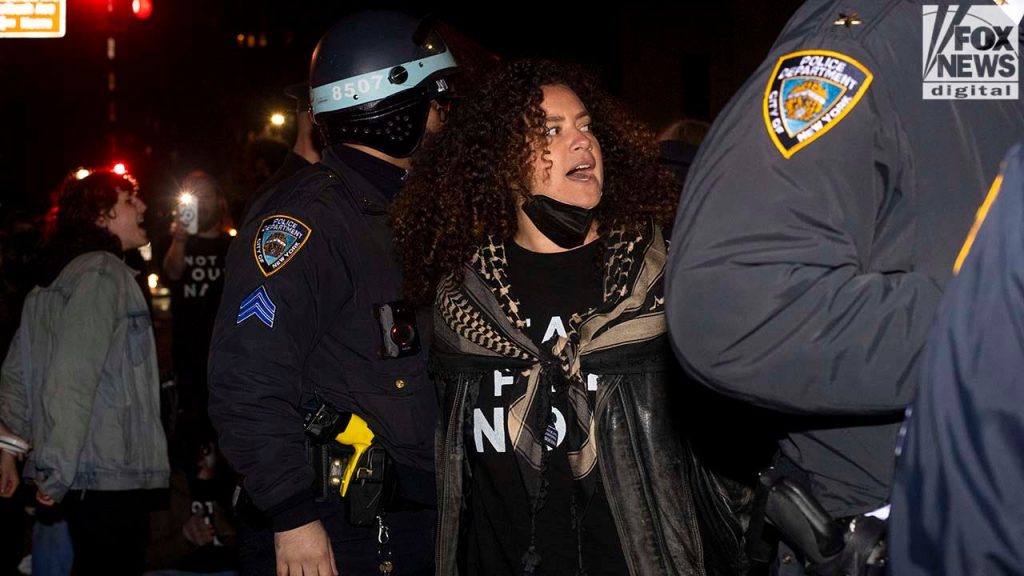Anti-Israel protesters staged a demonstration in front of Senate Majority Leader Chuck Schumer’s Brooklyn home in response to American support for Israel. The protest was organized by pro-Palestinian groups and was part of a “seder on the street” demonstration for the second night of the Jewish Passover. Demonstrators urged Schumer to stop U.S. support for Israel’s conflict in Gaza, leading to several arrests by the NYPD. The protest came amid a surge of anti-Israel demonstrations in New York City, with hundreds of arrests at various universities.
The protest outside Schumer’s home followed the Senate’s approval of a $95 billion emergency foreign aid package for Israel, Gaza, and Ukraine. The demonstration aimed to pressure Schumer to end U.S. weapon support for Israel’s conflict in Gaza. After speeches from pro-Palestinian leaders, several protesters were arrested by NYPD officers. The exact number of arrests was not immediately disclosed by the police. The protesters’ actions were part of a growing trend of anti-Israel sentiment in New York City, as demonstrated by the recent wave of protests and arrests at universities.
The protest at Schumer’s home was part of a broader backlash against U.S. support for Israel and its ongoing conflict in Gaza. The demonstrators’ calls for an end to weapons support for Israel reflected a sentiment shared by many pro-Palestinian groups. The protest took place in front of Schumer’s Brooklyn residence, attracting large groups of demonstrators and media attention. The protest, organized by pro-Palestinian groups, was a dramatic display of opposition to American foreign aid to Israel and highlighted the growing tensions surrounding the Israeli-Palestinian conflict.
The protest at Schumer’s home came amidst a larger wave of anti-Israel demonstrations in New York City, leading to numerous arrests at universities such as Columbia, Yale, and NYU. The demonstrations, which included over 100 arrests at Columbia University alone, prompted the institution to cancel in-person classes in an effort to reduce tensions. The protests underscored the deep-seated division over U.S. support for Israel and highlighted the challenges faced by pro-Israel advocates in the current political climate. The large-scale protests and subsequent arrests reflected a broader trend of anti-Israel sentiment in academic and activist circles.
The anti-Israel protests in New York City aimed to pressure political leaders like Schumer to reconsider their support for Israel and its conduct in Gaza. The demonstrations, organized by pro-Palestinian groups, highlighted the growing influence of such groups in shaping public opinion and political discourse. The protests at Schumer’s home and at universities like Columbia served as a platform for pro-Palestinian leaders to voice their grievances and demand change in U.S. foreign policy towards Israel. The arrests made during these protests underscored the deep divide over the Israeli-Palestinian conflict and the complex political dynamics at play.
Overall, the anti-Israel protests in New York City marked a significant escalation in the ongoing debate over U.S. support for Israel and its military actions in Gaza. The demonstrations at Schumer’s home and at universities like Columbia drew attention to the deep-rooted divisions within American society over the Israeli-Palestinian conflict. The protests, organized by pro-Palestinian groups, reflected a growing movement to challenge the status quo and demand accountability from political leaders. The arrests made during the protests underscored the intensity of emotions surrounding the issue and the challenges faced by those advocating for a change in U.S. policy towards Israel.


